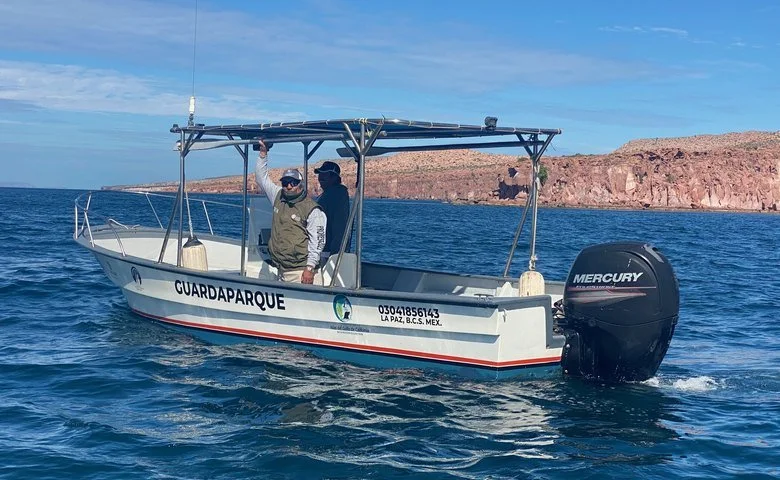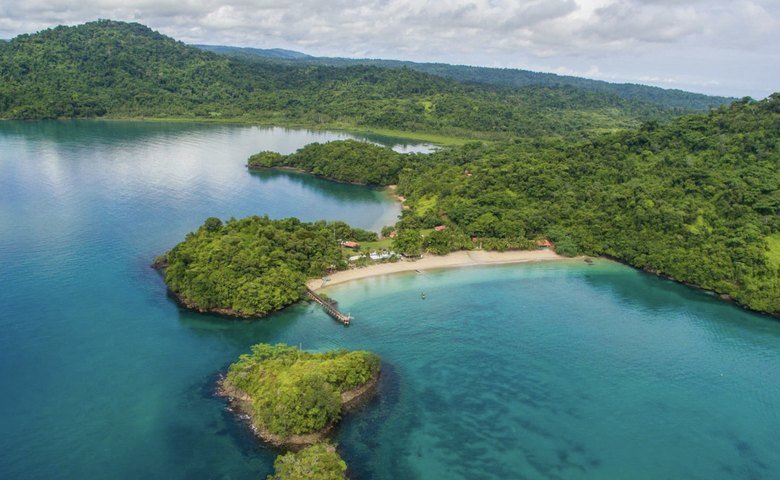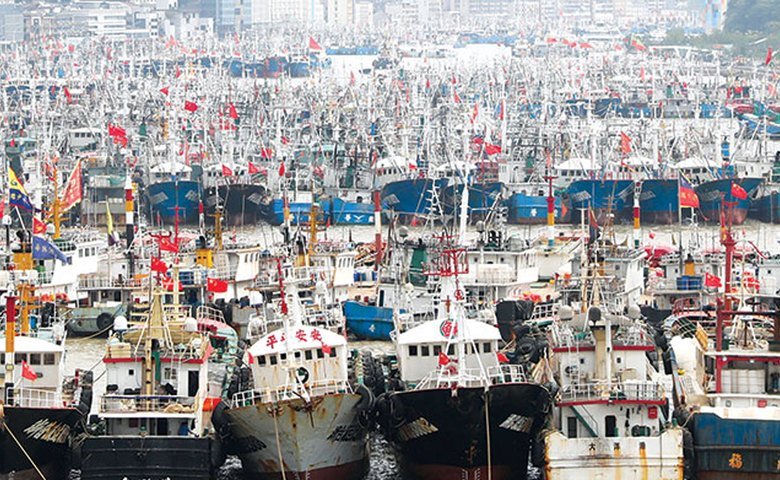Global Conservation makes $2 million commitment to deploy Marine Protection systems for developing countries
Global Conservation announced a $2 million commitment at Our Oceans 2023 to deploy Marine Protection systems – Global Park Defense – for endangered MPAs in developing countries using marine radars and real-time marine monitoring combined with SMART Patrols to enable ‘No Take’ protection.
Based on the success of the past five years deploying Global Park Defense for Marine Protection in 12 endangered MPAs, Global Conservation has committed to scale up its Marine Protection work to over 25 endangered MPAs in developing countries.
Global Park Defense utilizes Marine Radars and SMART Patrolling systems to make targeted and effective patrolling possible over large marine protected areas with few resources.
Mobile Marine Monitor in California’s Channel Islands. Credit: Protected Seas
While Our Oceans aims to expand protection for all signatories to 30x30 – thirty percent by 2030 – few MPAs today even have a boat for patrolling, let alone funding for gasoline, rations or maintenance. Global Conservation provides the critical systems and equipment to make effective marine protection possible.
Global Conservation is focused on protecting the most important 3% - not 30% - of the most intact and pristine Coastal and Island Marine Protected Areas working with countries and partners who agree to co-invest in needed vessels, marine wardens and patrolling operations.
We were represented at Our Oceans by our Director of Mexico, Alejandro Gonzales, who leads deployments in Baja Sur (Cabo Pulmo to Loreto) and Islas Marias Marine Biosphere Reserve, Mexico’s largest coastal No Take MPA – over 400,000 hectacres (4,000 square kilometers).
For Our Ocean 2023, Global Conservation has committed $2 million over the next 5 years to deploy Global Park Defense with marine radars and SMART Patrolling – including EarthRanger for Marine and Skylight – into 20 new Marine Protected Areas in developing countries, many do not even have a patrol vessel today.
Marine Monitor (M2) marine radar system deployed in Islas de la Plata, Machiallia National Park, Ecuador.
In Panama, Global Conservation is deploying Global Park Defense in Coiba National Park, a UNESCO World Heritage site with excellent intact marine ecosystems facing increasing pressures from illegal fishing and wildlife poaching.
Global Conservation Director of Mexico, Alejandro Gonzales, with Honorable John Kerry, United States Special Presidential Envoy for Climate and former U.S. Secretary of State.
The Our Oceans conference focuses on concrete action to protect ocean health and security. In 2023, the Our Oceans closed with 382 commitments worth $16.35 billion across the six issue areas of the conference. Since 2014, the Our Ocean Conference has now mobilized more than 1,800 commitments worth approximately $108 billion.
In Marine Protection, Global Conservation’s $2 million commitment is one of seven NGOs committing a total of $18 million for the protection of Marine Protected Areas in developing countries.
About GC Marine Protection
Global Conservation is working to scale up Marine Protection by deploying our Global Park Defense system combined with an innovative Marine Monitor (M2) radar system developed by Protected Seas combined with UAV Drones to enable 24/7 surveillance against illegal fishing and marine wildlife poaching.
Over the past five years, we have deployed Global Park Defense in eight (8) global Marine Protected Areas (MPAs) and six (6) in California and Hawai’i, our technology proving grounds in the United States. Based on this success, our goal is to scale up to protect 100 MPAs in the next ten years.
Our primary focus is on the most important and endangered marine ecosystems - UNESCO World Heritage Sites and National Marine Parks – in developing countries. Out of hundreds of assessments, we only pick MPAs to support with critical leadership in place, government commitment and co-funding, and operations marine warden teams with working patrol vessels to enable rapid response to illegal activities.
Coiba National Marine Park, Panama where Global Conservation is deploying Marine Monitor (M2) radar and SMART Patrols for marine protection against illegal fishing.
About Coiba National Marine Park, Panama
Global Conservation has agreed to deploy Global Park Defense and marine radars in Coiba National Marine Park with the Ministry of Environment of Panama. In 2005, UNESCO World Heritage Committee declared Coiba National Park and its Special Zone of Marine Protection a Natural World Heritage Site. Ideal for diving alongside huge fish schools, bottlenose dolphins and giant seahorses, Coiba’s forests are also brimming with wildlife including endemic species like Coiban agoutis, howler monkeys and brown-and-while spinetail birds.
In fact, Coiba is often called “Panama’s own Galapagos,” thanks to the large number of endemic species that lived and thrived here over the years with relatively little human interference. This past November, researchers actually proved that Coiba is connected to the Galapagos through a 900-mile natural “pipeline” in the Earth’s mantle.
Our Oceans 2023
At Our Oceans 2023, the Republic of Panama becomes the first Central American country to host governments, businesses, and conservation leaders to demonstrate their interest in saving the ocean through measurable impacts and cooperation. The U.S. delegation, headed by Special Presidential Envoy for Climate John Kerry, made 77 announcements valued at nearly USD $6 billion. Global Conservation was proud to be part of this delegation and represented by our Director of Mexico, Alejandro Gonzales.
United Nations High Seas Treaty
Over 100 nations reached a historic agreement this week to protect the world's oceans following 10 years of negotiations. The High Seas Treaty aims to place 30% of the seas into protected areas by 2030, to safeguard and recuperate marine nature.
The last international agreement on ocean protection was signed 40 years ago in 1982 - the UN Convention on the Law of the Sea. That agreement established an area called the high seas - international waters where all countries have a right to fish, ship and do research - but only 1.2% of these waters are protected.
Marine life living inside and outside these protected areas are at high risk of extinction and collapse from overfishing, especially by the top fisher countries – with China x10 larger than the next country. 10% of global marine species are at risk of extinction, according to the International Union for Conservation of Nature (IUCN).
The European commissioner for the environment, ocean and fisheries, Virginijus Sinkevičius, described the agreement as a “historic moment for the ocean” and the culmination of more than a decade of work and international negotiations.
“With the agreement on the UN High Seas Treaty, we take a crucial step forward to preserve the marine life and biodiversity that are essential for us and the generations to come,” she said. “It is also a proof of strengthened multilateral cooperation with our partners and a major asset to implement our COP 15 goal for 30% ocean protection.”
Chinese Fishing Fleet, the largest in the world.
For more information, contact:
Jeff Morgan
Executive Director
Global Conservation
jmorgan@globalconservation.org
+1.650.814.2045











